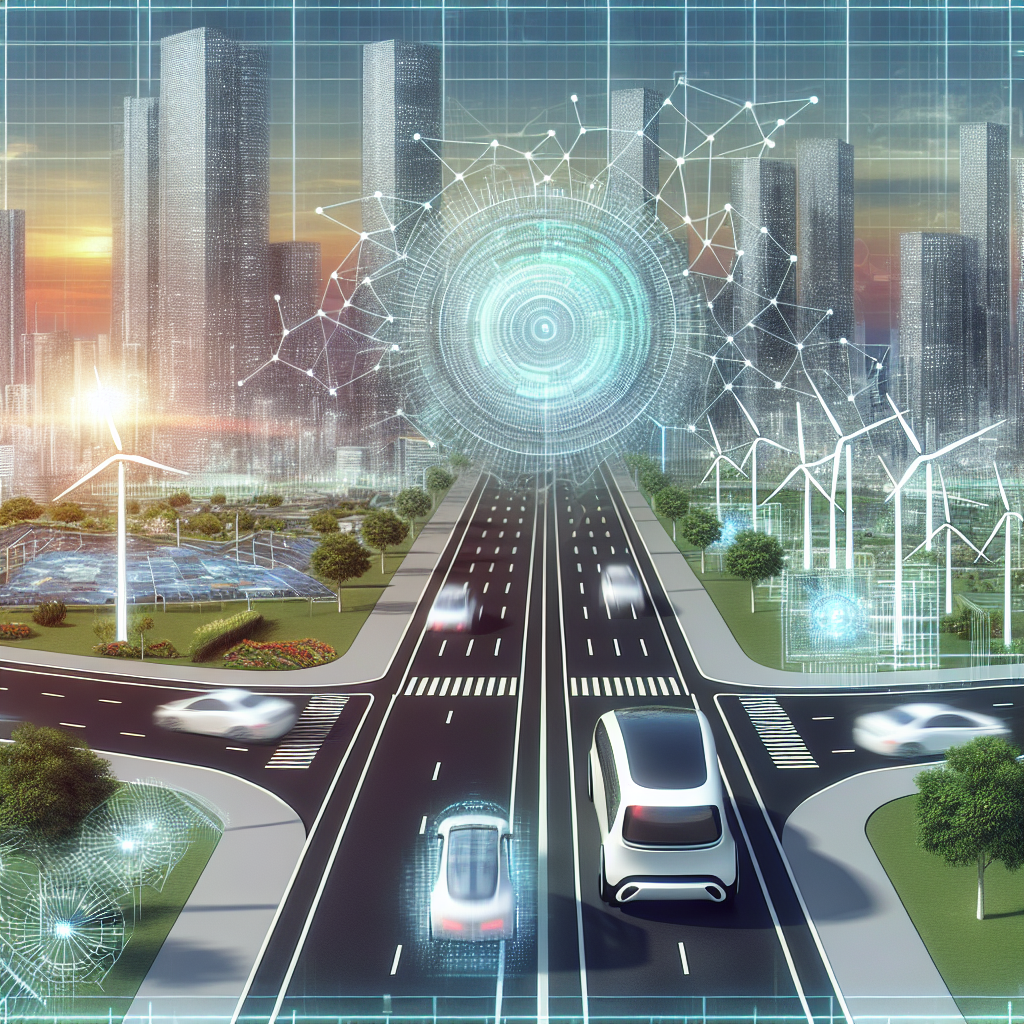The Impact of AI on Sustainability in Transportation
Artificial Intelligence (AI) has revolutionized the way we live, work, and interact with the world around us. One of the areas where AI is making a significant impact is in transportation. The use of AI in transportation is not only improving efficiency and safety but also contributing to sustainability efforts. In this article, we will explore the various ways in which AI is transforming the transportation industry and promoting sustainability.
AI in Traffic Management
One of the key areas where AI is making a significant impact in transportation is in traffic management. AI-powered traffic management systems can analyze real-time traffic data, predict congestion, and optimize traffic flow to reduce congestion and emissions. These systems can also adjust traffic signals dynamically based on traffic conditions, leading to smoother traffic flow and reduced carbon emissions.
AI in Autonomous Vehicles
Autonomous vehicles, also known as self-driving cars, are another area where AI is making a big impact in transportation. AI-powered autonomous vehicles can navigate roads, make decisions, and interact with other vehicles and pedestrians without human intervention. This technology has the potential to revolutionize transportation by reducing accidents, improving traffic flow, and reducing emissions.
AI in Fleet Management
AI-powered fleet management systems are helping transportation companies optimize their operations and reduce their environmental impact. These systems can analyze data from vehicles, drivers, and routes to identify inefficiencies and suggest improvements. By optimizing routes, reducing idle time, and improving maintenance schedules, AI-powered fleet management systems can help transportation companies reduce fuel consumption and emissions.
AI in Public Transportation
AI is also being used to improve public transportation systems. AI-powered systems can optimize bus and train schedules, predict passenger demand, and adjust routes in real-time to improve efficiency and reduce emissions. These systems can also provide real-time information to passengers, helping them make informed decisions about their travel plans.
AI in Ride-Sharing
Ride-sharing services like Uber and Lyft are also using AI to improve their operations and reduce their environmental impact. AI-powered algorithms can match drivers and passengers more efficiently, reducing empty miles and emissions. These algorithms can also optimize routes and reduce wait times, improving the overall experience for both drivers and passengers.
FAQs
1. How is AI helping reduce emissions in transportation?
AI is helping reduce emissions in transportation by optimizing traffic flow, improving fuel efficiency, and reducing idle time. AI-powered systems can analyze data in real-time to identify inefficiencies and suggest improvements, leading to reduced emissions.
2. How is AI being used in autonomous vehicles?
AI is being used in autonomous vehicles to help them navigate roads, make decisions, and interact with other vehicles and pedestrians. AI-powered algorithms can analyze sensor data, predict traffic patterns, and make real-time decisions to help autonomous vehicles drive safely and efficiently.
3. How is AI improving public transportation systems?
AI is improving public transportation systems by optimizing schedules, predicting passenger demand, and adjusting routes in real-time. AI-powered systems can help public transportation agencies improve efficiency, reduce emissions, and provide better service to passengers.
4. What are the benefits of using AI in transportation?
The benefits of using AI in transportation include improved efficiency, reduced emissions, increased safety, and better passenger experience. AI-powered systems can help transportation companies optimize their operations, reduce fuel consumption, and provide real-time information to passengers.
In conclusion, AI is playing a crucial role in transforming the transportation industry and promoting sustainability. By leveraging the power of AI, transportation companies can optimize their operations, reduce emissions, and improve the overall travel experience for passengers. As AI continues to advance, we can expect to see even more innovative solutions that will help create a more sustainable and efficient transportation system.

